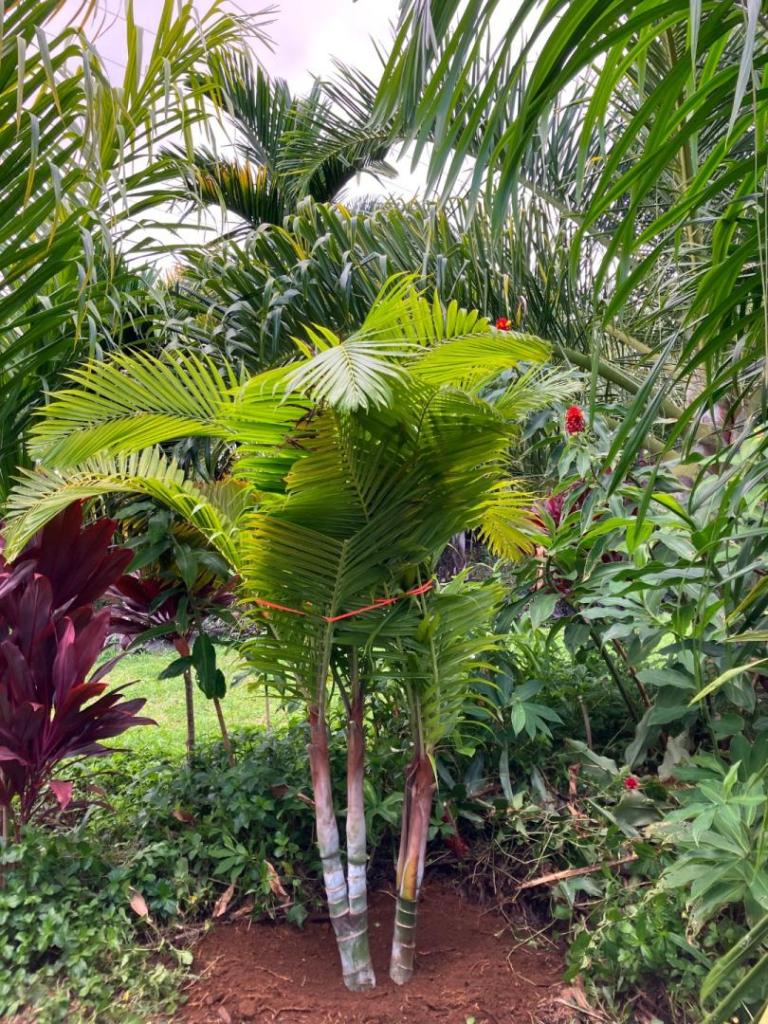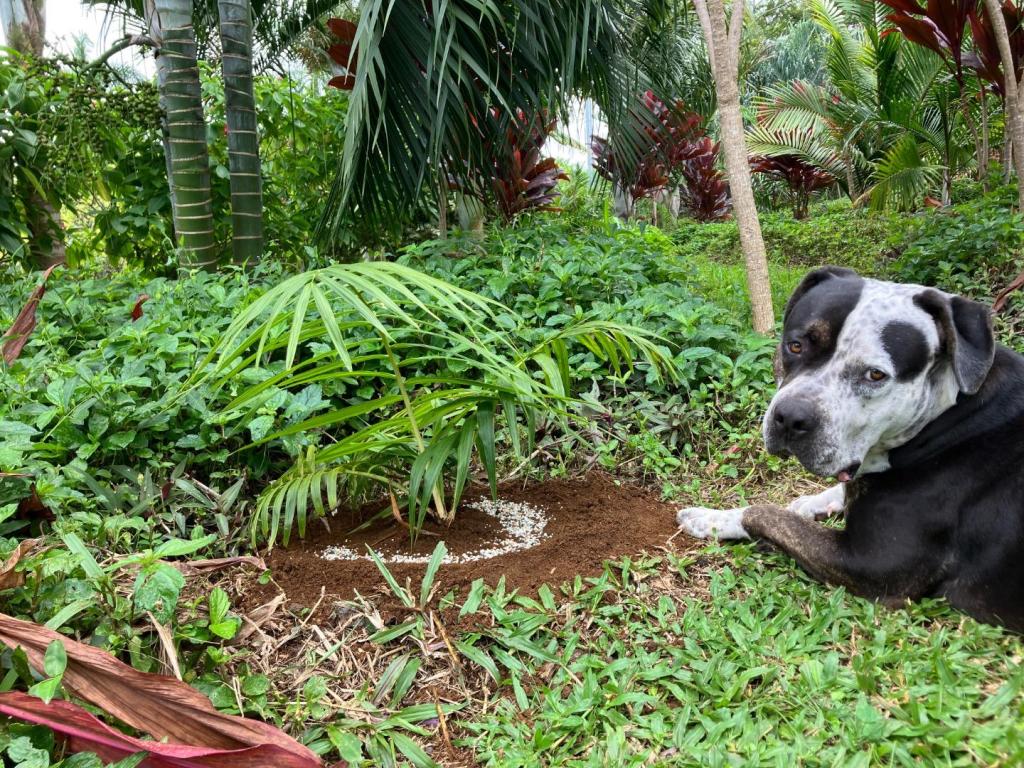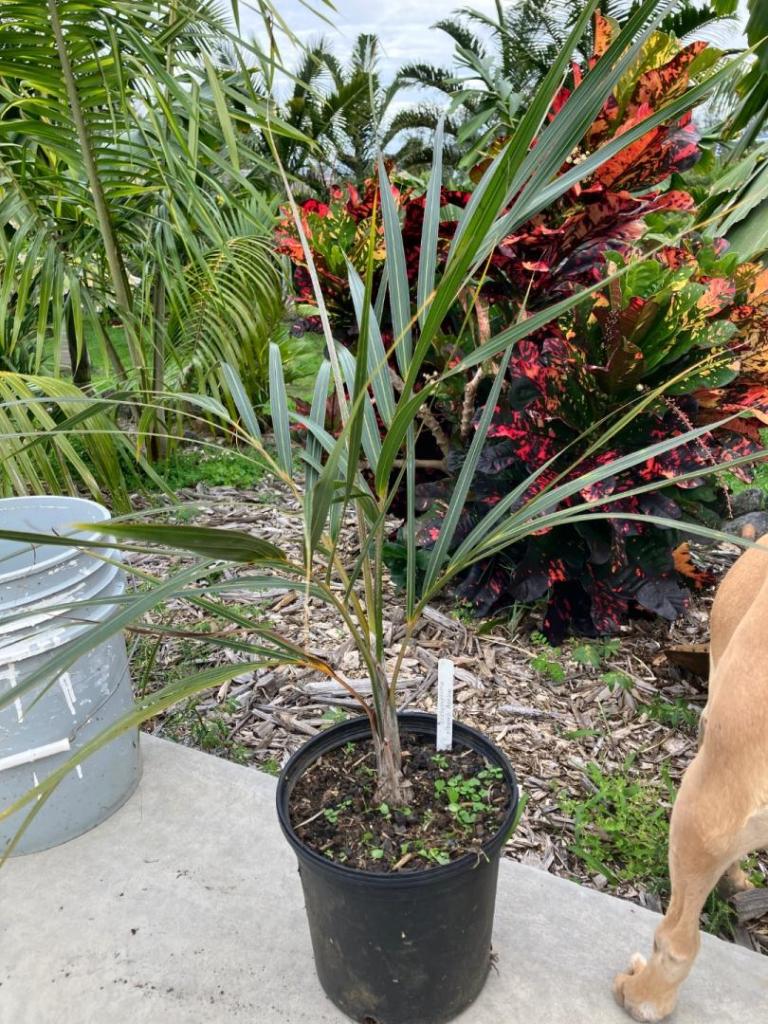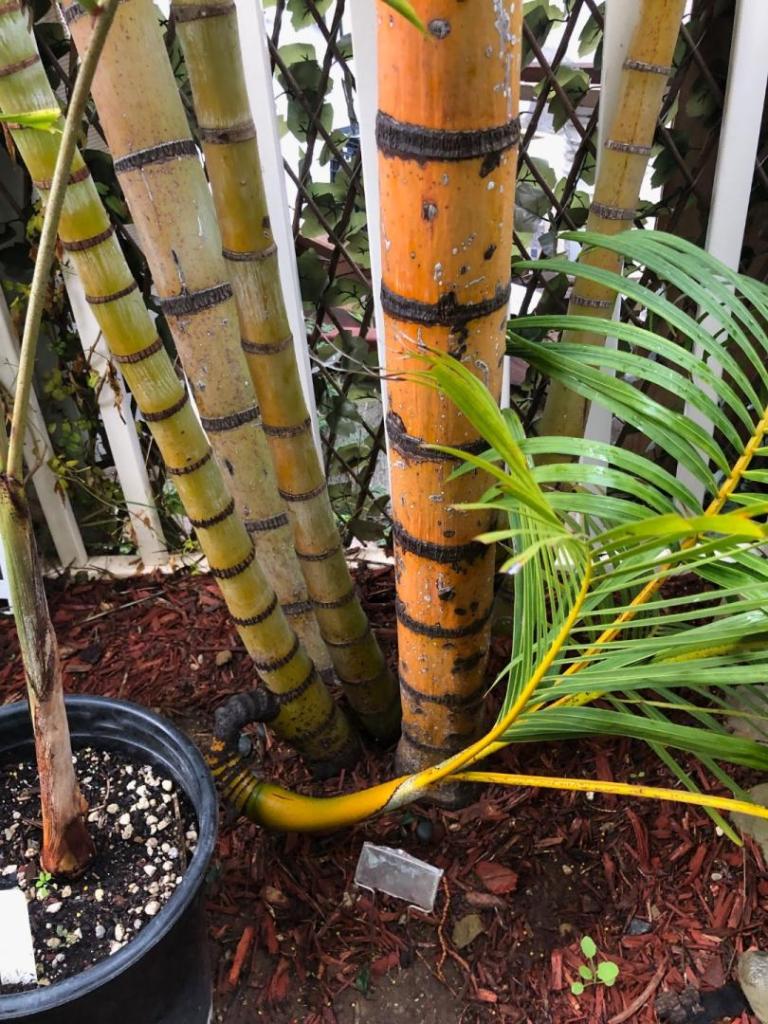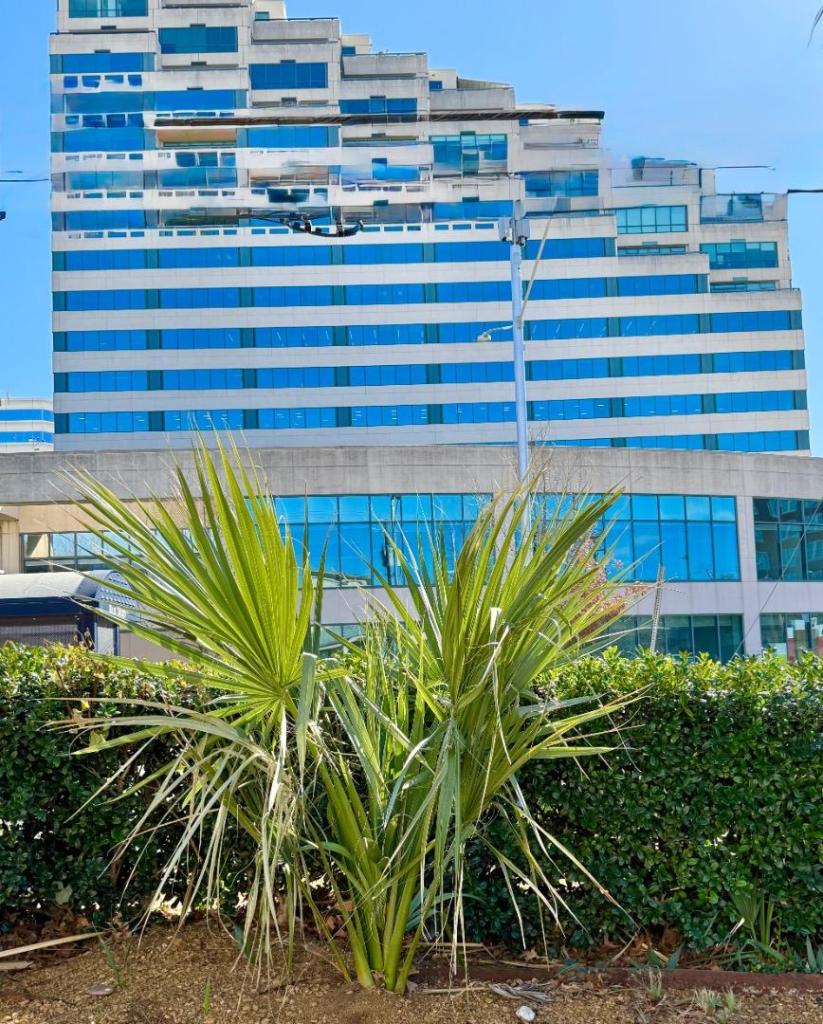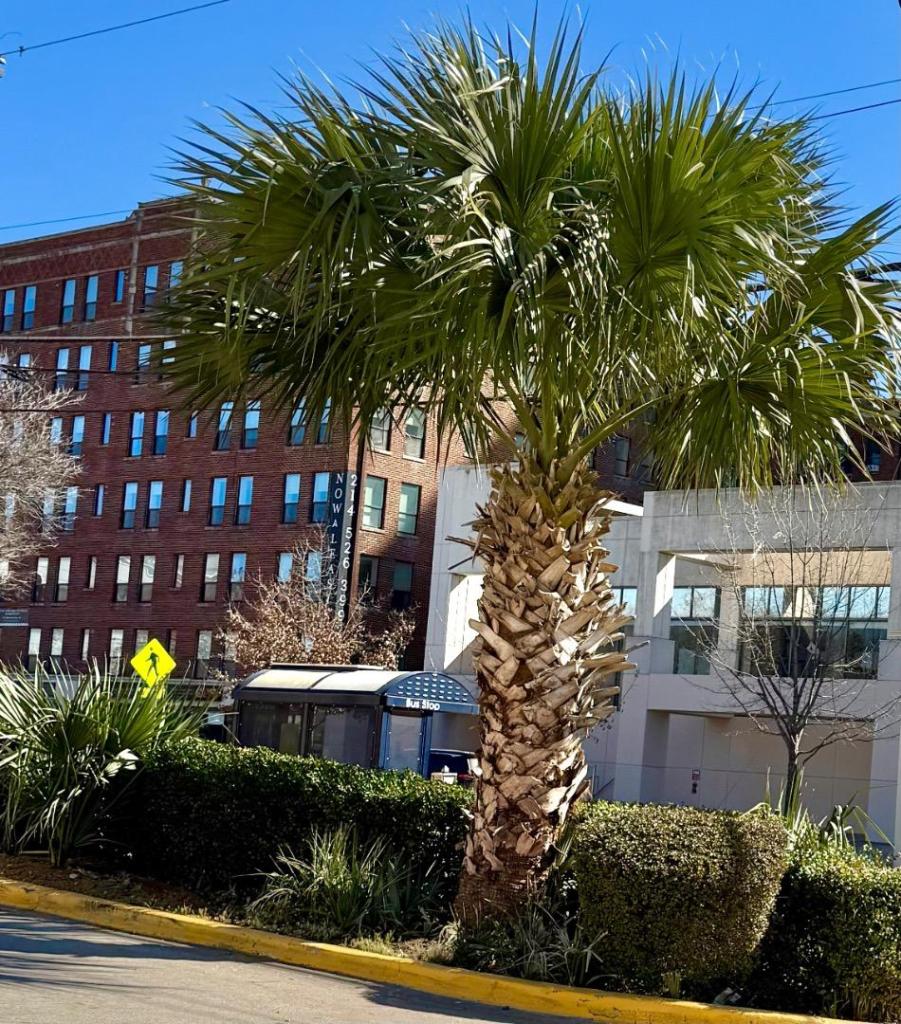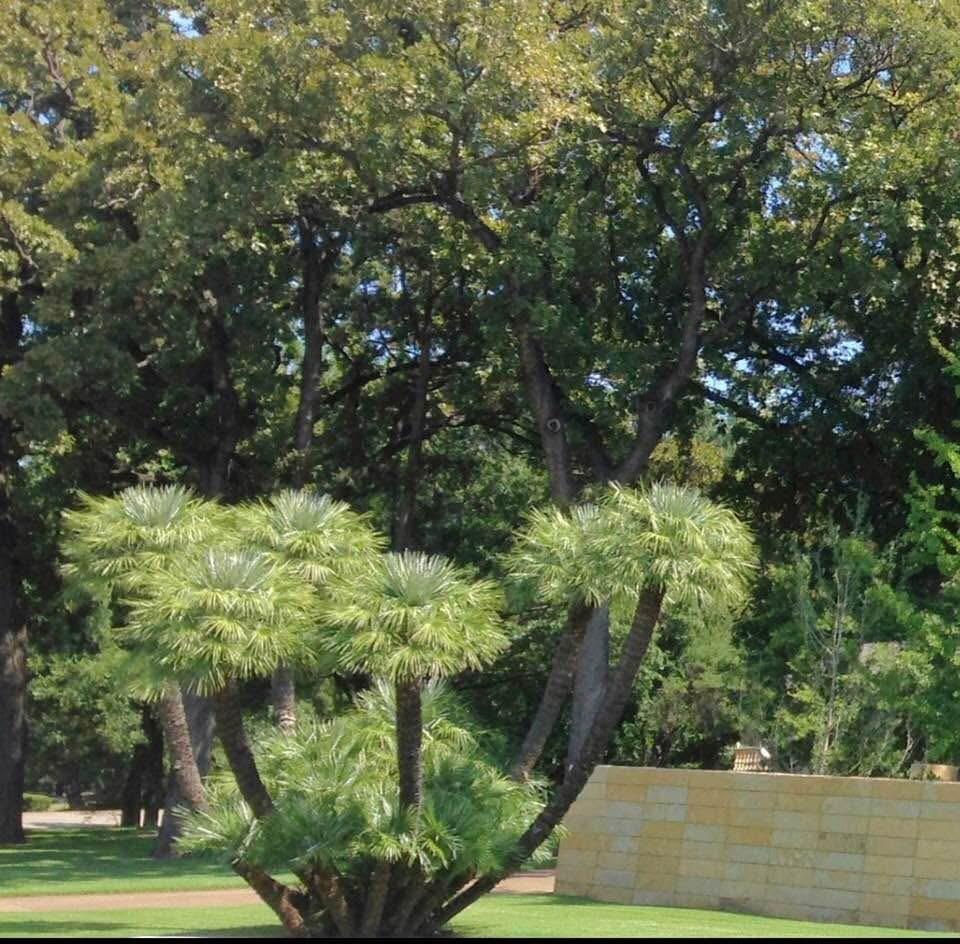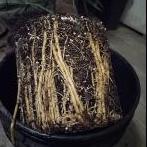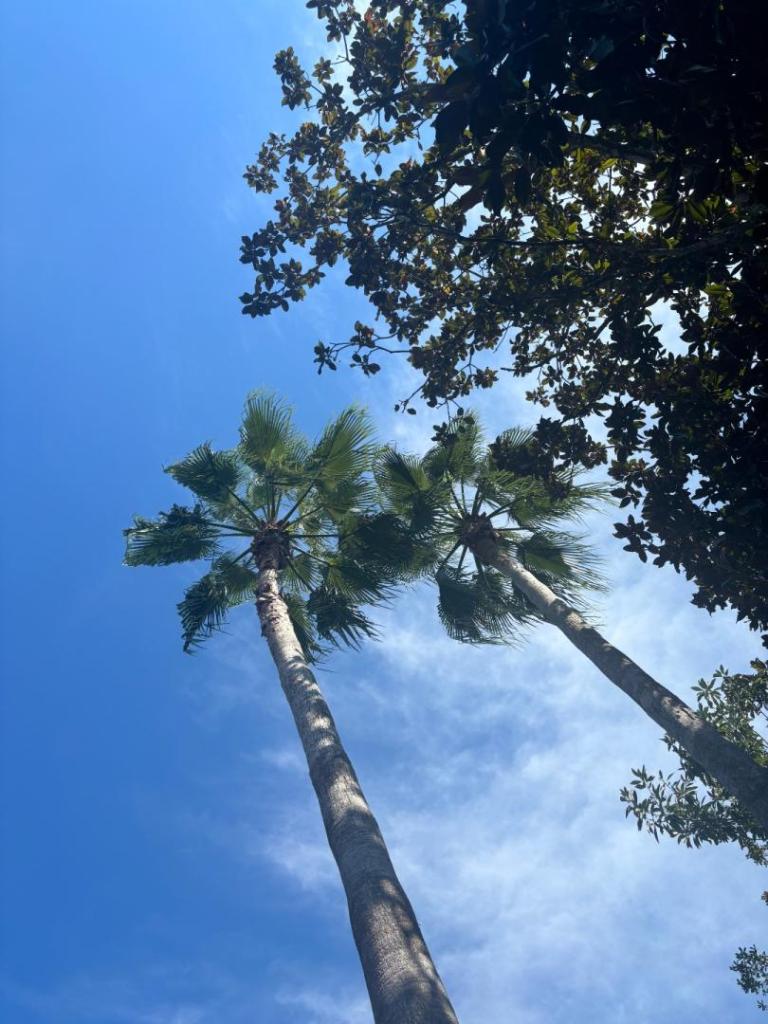Leaderboard
Popular Content
Showing content with the highest reputation on 02/06/2026 in all areas
-
8 points
-
8 points
-
Finally my long awaited decipiens seeds are germinating, they have come the long way around to Australia, so a big thank you goes out to @Harry’s Palms in sunny California. He went to all the trouble of collecting them and seeing them on their way to sunny Australia. From there they were distributed to a few local growers. And the rest down by myself. There has also been a few others still germinating on the heat mats. Lanonia dasyantha large form another batch I had are coming up. The decipens where not placed on the heat mats just the warm summer temperatures got them going!6 points
-
5 points
-
5 points
-
Here’s a current look at the famous Bottle Palm in Adventureland at Magic Kingdom. Credit to YouTuber ROPE DROP II for these screenshots from livestream today. Current look at a portion of the Jungle Cruise landscaping at Magic Kingdom I think the tree is a pink Tabebuia, leaves look all brown. Brown vegetation in planter near entrance to Adventureland Jacaranda foliage looks damaged in Tomorrowland5 points
-
while I realize the topic of hardiness between Archontophoenix Cunninghameana and Alexandrae has been discussed for years, our recent extreme cold gave me the ability to take pictures of the two growing side by side in my yard. Official Belle Isle FL (Orlando) low was 25 I live near n a large lake which creates a microclimate that has allowed Cocos Nucifera to live here without dying in the last brutal cold of 2010. I believe we are the only spot in Orlando where Cocos Nucofera survived 2010. My recorded low was 28 degrees but its likely parts of the yard were a little lower. The warmer part of the yard is the back yard near the water. As the pictures show, even side by side, Archontophoenix Cunninghameana are undamaged while Alexandrae are completely defoliated.4 points
-
4 points
-
See some of @happypalms posts about germinating , he will hopefully come along and help out . I soak for about a day and then , if you bury them , do it just below the surface. Some , like Richard , leave them on the surface . I use a mix of good potting soil , a little vermiculite , and orchid mix . Heating mats help but I don’t use them . Harry edit: patience is required! Some seeds have taken months , for me🙂4 points
-
4 points
-
Two things: They hate soil drying out and they don’t like being frozen. Yours looks both frozen and dried out. Keep it warm and well watered. There needs to be a drain hole in the pot as well. Keep it by a bright window or under a grow light. You can trim off anything brown. If it recovers, it’s going to take some time to do so.4 points
-
From left to right: Hyophorbe Vaughanii, Basselinia Pancheri and Chrysalidocarpus Arenarum in the ground (in the same order as above): And last but not least is a small Pseudophoenix Sargentii. This is a full sun location next to the house so I’m looking forward to seeing this grow. thanks for looking4 points
-
I know this is kind of early but has anybody planted anything yet? i'm dying to plant stuff right now but it's way too early. If So please send pictures i would love to see them!3 points
-
4 nights of freezing here (30, 24, 28, 32) and probably 10 frosts above freezing. I tried to create a windbreak using tarps and lining the ground in the garden with c9 lights. Due to 30mph winds on the 24f night, my attempt failed and nature took its course. Undamaged: Coccothrinax Macroglossa ‘Azul’ (saw 26f under failed makeshift greenhouse with temp sensor in it) Leucothrinax Morissii x2 Sabal Mauritiformis Sabal Causiarum Chamaedorea Costaricana Chamaedorea Microspadix Copernicia Prunifera Copernicia Alba x Unknown Euterpe Edulis Livistona Mariae Damaged: Beccariophoenix Alfredii x2 10’ and 12’ tall about 70% defoliated, green interior fronds and spears Chrysalidocarpus Pembanus x2 8’ tall 80% defoliated, green spear and undamaged smaller stems Howea Forsteriana 6’ tall 60% defoliated Thrinax Radiata 4’ tall with 10” of woody trunk 60% defoliated Chambeyronia Macrocarpa x2 both beginning to trunk defoliated except for good spears Chamaedorea Ernesti Augustii (tarp smothered it) 80% defoliated Chamaedorea Cataractarum 50% defoliated Cryosophila Warscewiczii 30% defoliated Archontophoenix Cunninghamiana x2 25’ and 18’ both totally defoliated. Spears look good. Crowns were wrapped in burlap with c9 lights Chambeyronia Oliviformis 5’ tall newest leaf snapped in half but is green, spear looks good Dead: (Flopped after first night at 24f) Kerriodoxa Elegans (3g just planted in October) Chrysalidocarpus Lanceolatus 6’ tall Ptychosperma Schefferi 3’ tall - may come back from roots Ptychosperma Macarthurii 2’ tall - may come back from roots Pinanga Adagensis - just got first ring of trunk Archontophoenix Maxima 3g Archontophoenix Myolensis 3g Archontophoenix Tuckeri 3g3 points
-
Hopefully you'll get some rain on Tuesday! We need it here too but not as badly as y'all. Only palm planting so far is a transplant of this Phoenix reclinata x canariensis that I initially planted in a bad spot. Not a palm but I recently planted this Valencia orange that is still flowering even after the freeze. Ti plants are suffering from transplant shock.3 points
-
Could it be? My wee little Wodyetia getting its first sign of forming a trunk! I know …..a lot of folks here in SoCal have had easy success with them , but after losing two large specimens , one near a Roystonia Oleracae that continues to thrive , seeing my two juvenile Foxtail palms grow ( 3 winters now) is thrilling . Harry I didn’t notice this the last time I peeled the crispy leaf base from the palm! The warm summer like weather , upper 80’s Fahrenheit, we have had off and on for weeks . Yay!3 points
-
I’m loving this thread Bodie. I’ve got no plans to plant in the immediate future but have several Sabals that have to go in the ground: miamiensis, mexicana, and minor. The forecast for the next week is downright spring-like but we have another couple of weeks until we can be much more confident that spring is here to stay.3 points
-
3 points
-
A long journey but they got to the propagation bench so to speak. A wonderful gift of seeds that shall always have a story behind them as to where they came, thanks Harry! Richard3 points
-
3 points
-
Good on your son for having an eye for palms, and loving his mother gifting her with one of Mother Natures finest palms. Unfortunately I don’t think your motherly gift will make it. Console your son and thank him for such a lovely thoughtful gift. And as for not having a green thumb we have all killed our plants sometime or other!3 points
-
3 points
-
3 points
-
This is what you need, they are made to keep pipes from freezing. It's called heat tape or heat cable, and it looks just like an extension cord that heats up. Amazon, lowes, and home deport usually carry them. There is an inline thermostat built in that clicks on at 38 deg clicks off around 45. If you wrap up the thermostat right up against the palm then it does a really good job of limiting the heat. I found then can get a hot spot where you have two parts of the cable crossing over and touching itself. I been adding a few wraps of frost fabric over the first layer if I plan on making a second layer of cable. thermostat package3 points
-
Looks like quite a few of my palms will be getting the ring this growing season. Here’s a couple: Chrysalidocarpus prestonianus hybrid (consensus is likely x pembanus or cabadae). I believe this is originally from Floribunda seed. It definitely has hybrid vigour just in the fact it is growing here in Melbourne. Next up Chrysalidocarpus baronii Black Petiole/Vokona Lodge. Got a batch of 10 seeds from RPS back in 2018 and all germinated 2019. This is the largest of the bunch but also the least colourful. I’ve got 5 left now and the others are all quite striking in the range from red to black leaf bases and petioles. Always thought they’ve been quite slow, but considering it’s been 6-7 years from seed to producing clean trunk, I’d say that’s not bad.3 points
-
Ps I now have a job on a 200 acre farm and you guessed it irrigation is that job, so lucky I get to do what I love for a job! Richard2 points
-
2 points
-
Surprise 33°F low this AM with a light frost. Lost a couple more smaller plants that I had saved in the preceding freezes as the forecast was 36°F and the NWS was very accurate over the past week. I was just tired of moving things. I have family in town from way up north that wanted to come down to "warm up". I suggested that early-mid March was more reliable for warm temps but they insisted on early February. Anyway, they wanted to go see Palm Beach yesterday so I got a chance to drive down the east coast a bit and make some observations. There was major damage to most of the usual suspects. Seagrape was burned badly all the way down. Cocos, Wodyetias, Archontophoenix, Adonidias, Arecas, Bottles & Royals all had severe to moderate damage with some pockets that seemed mostly spared but I could not figure out why. These were pretty small pockets so they really were microclimates. As expected, by the time we reached Palm Beach proper the damage was far less severe but still noticeable in many places, especially in open areas. The cocos seemed particularly hard hit relatively speaking. Hutchinson Island which is the barrier island proximate to PSL was not spared, though the damage to a significant percentage of affected tropicals looked survivable. PSL is a horror show. Sabals, Washingtonia, Roebellinii, Bismarkia, Syagrus, Livistona all seem fine...for now at least but all the zone 10 rated are torched. I have not experienced a freeze of any sort in my 10 years here, a few light frosts was all, so this will be a lesson in recovery for me, primarily for Royals, as I understand mature specimens can bounce back... but I recorded 25,24°F on consecutive nights and they all look terrible. I am not allowing myself hope on my Adonidias and Wodyetias and it is a shame, because they were so healthy and really nice specimens, I put a lot of effort (and money) into them. I'm still in a bit in shock that the temperature here was not much different than that of far north Florida during this event.2 points
-
Well you’re gunna need a bigger boat! That’s a lot of seeds and a lot of time and space involved in such a project, you’re little science project has taken on a new level from a small laboratory to full on Dr Frankenstein set up (insert Mel brooks movie here) Time to hit up the old happypalms vault and do a bit of research on a few back issue posts. Dont get overwhelmed by so many seeds it’s easy, community pots or box’s, baggie method your decision. That many seeds myself styrofoam box’s with lids (etoliation method) if no bottom heating plastic bags will help you out for a bit of extra heat. Good luck keep us all posted!2 points
-
The Leu Gardens plant sale will make bank this year 🙃2 points
-
Forecast lows of 38 2 nights in a row this weekend so I'll assume 2 more freezes or at minimum heavy frost.2 points
-
None of the Canna I've grown in recent years develop seed / Indian shot. All grown from rhizome divisions.2 points
-
I did a dose of hydrogen peroxide on pretty much all the palms yesterday afternoon. Most didn't react at all, but the Cyphophoenix (all of them) foamed up like mad. Those turned black when they burnt, instead of the typical red/brown. I'm sure they are D-E-D. After that I mixed up a total of 2.5 gallons of Daconil and squirted it into the crown of all the palms and almost all the cycads. As expected, the cold damage just keeps looking worse and worse. The 31.3F and heavy snowlike frost this morning didn't help at all. Here's the data logs, frost and local airport temps.2 points
-
I have my bucaneer and spindles in the front since they take cold better (as the photos show), but mine look bad after two years of mid 20s once each year. Outside the 24.8 radiational freeze the second night of the big event I have had 28.9 to 31.9 degrees 10 times this winter and it's starting to show. I've been lucky for the area but it's a little depressing in front right now. Aiming for zone 9b arid stuff for up there now and hoping it's not too humid and rainy for some like brahea. Cacti love it up front too. I left the desert for Florida and now am going to create it🙄🤣.2 points
-
Man guys, that’s exciting! I think I would’ve shat a brick if I still lived there and got a near zone 9 winter! Can’t wait to see how your palms do this coming growing season. Happy spring soon!2 points
-
Gorgeous palms. Yes, I have a pro coming over today to apply. He said he was surprised how well mine look compared to around town and his place. He is from north of Orlando. He is most concerned for the coconut and bottle. Gonna try and test for spear pull on coconut. I can't reach it.2 points
-
Odds seem to be against you, it may not make it but think of it as a lesson. A basic but very important lesson: palms should not dry out completely. Also, young ones don't tolerate freeze well and should be brought indoors when very cold. These two facts represent 70% of what you need to know to grow palms. It may make it however. Keep it in a warm and bright spot and make sure the soil doesn't dry out completely.2 points
-
I love that lutescens of yours the trunk is such a bamboo looking thing. A very distinct variety! Richard2 points
-
I have a Chrysalidocarpus Leptocheillos hybrid that was just never real happy and it was in a prime spot. So I decided to dig it up and move it to a more sheltered area in my Madagascar planter. I replaced it with a Chrysalidocarpus Prestonianus hybrid that was recently made available on the Floribunda price list. These are fast palms and will quickly fill in this area: And here’s the Leptocheillos hybrid in its new spot. Fingers crossed it survives the move:2 points
-
A few more new plantings went in recently with hopes that the rains would finally show up. And looks like they have. It’s raining now as I post this and looks like some good rain is coming this weekend finally. We’ve been off to a dry start for the year so far here in Hawaii so this is a welcome relief. Up first is one I am very happy about - Chrysalidocarpus Ifanadianae. I lost my trunking one of these this past year and didn’t think I’d be able to find a replacement. Jeff and Suchin at floribunda found me the last one they had there, in a 5 gallon pot. in the ground, close to where the original one was planted: up next was Dictyosperma Album Var. Aureum:2 points
-
I was able to keep one alive indoors at my old house but it was constant fussing with it . It was a single plant that started sending pups after about 2-3 years. I would put it outside every few days and mist it , then clean the fronds or it would get mealy bugs. Mild soap solution helped with the bugs and putting it outside in a shady spot with a bit of breeze seemed to help with humidity. About 7 years later we bought our new home and decided to put it in the ground as they grow very well outdoors here. It is huge now . Harry ‘It hasn’t gotten any new stems since planting but it has branched out above ground shoots. ‘Above ground branching , both of my C. Lutescens have done this. The other one is still clumping and larger than this one. Harry2 points
-
2 points
-
2 points
-
2 points
-
West Palm Beach airport (KPBI) seems to have briefly dropped to 30 F actually, on the second night of the cold snap.2 points
-
2 points
-
2 points
-
2 points
-
2 points
-
I’ve tried Loucomalla at least 4 times with multiple plants each try. I thought a few would survive as they lasted a few years but then ended up dying. I’m done. Good luck with yours. -dale2 points



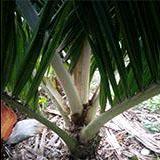




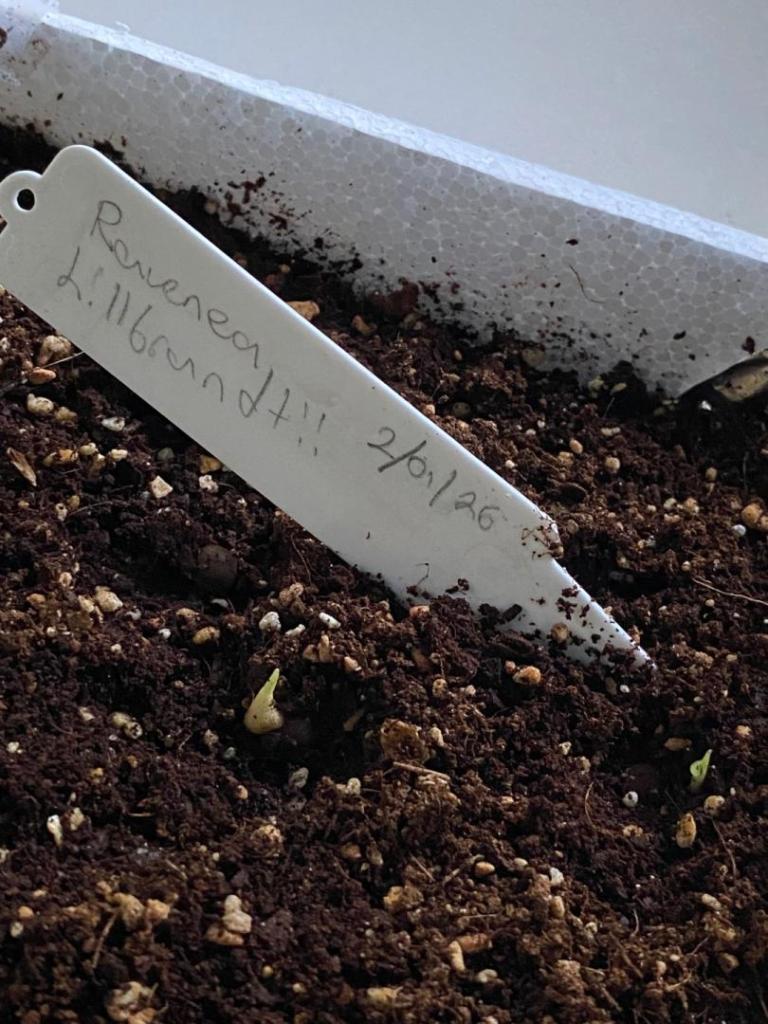


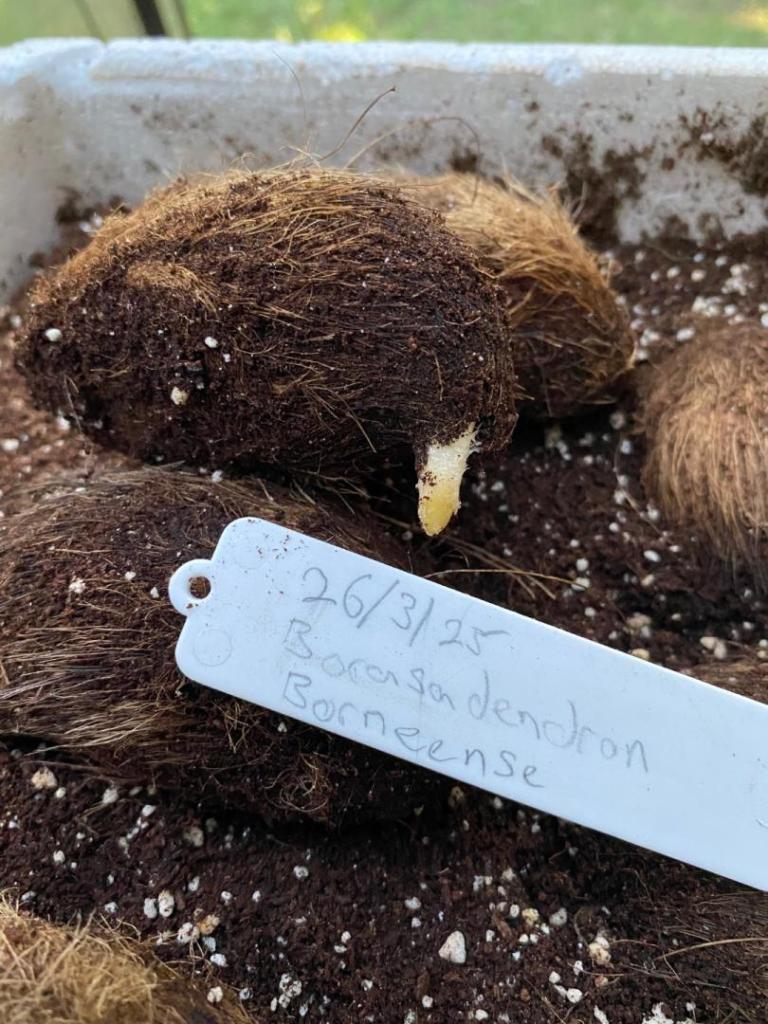



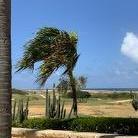


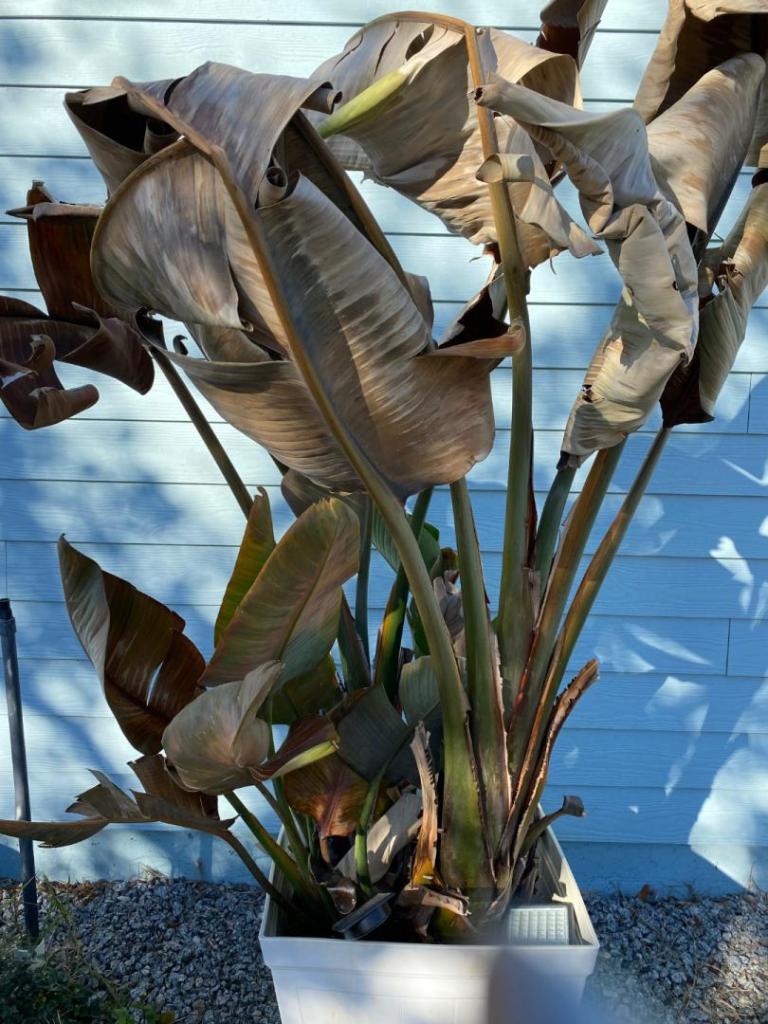
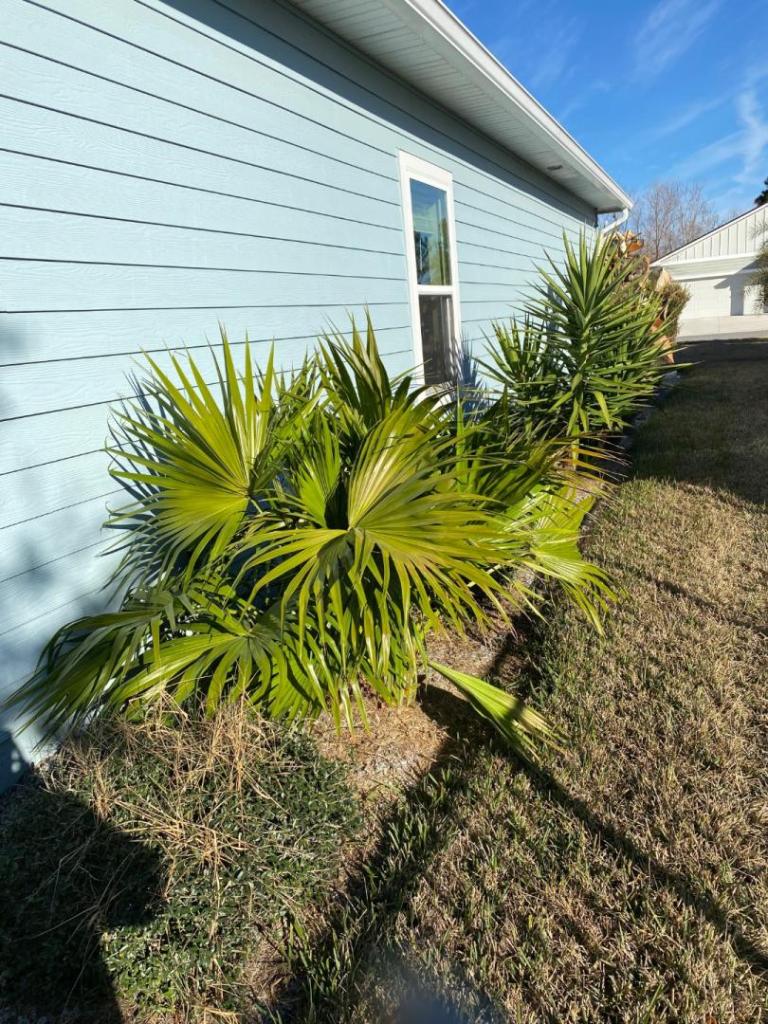
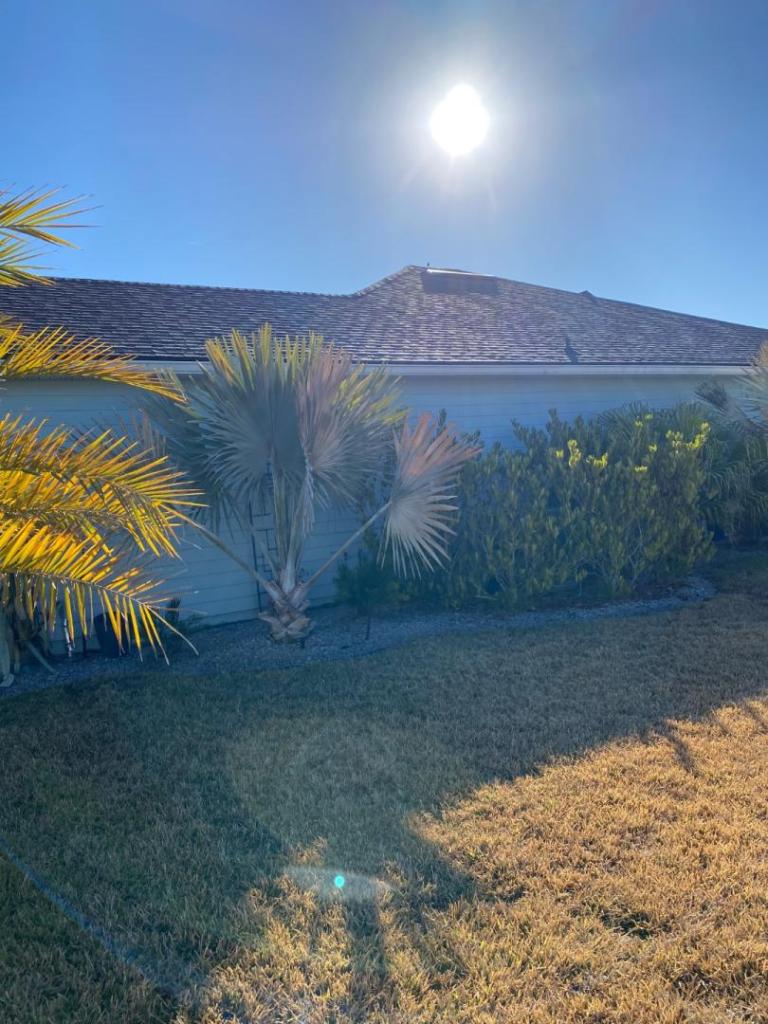



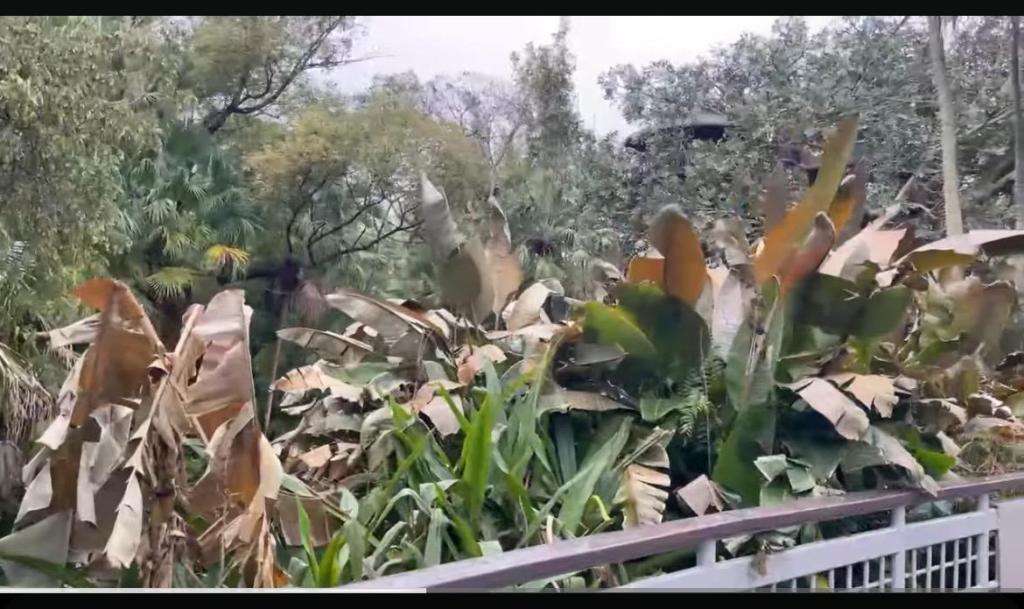
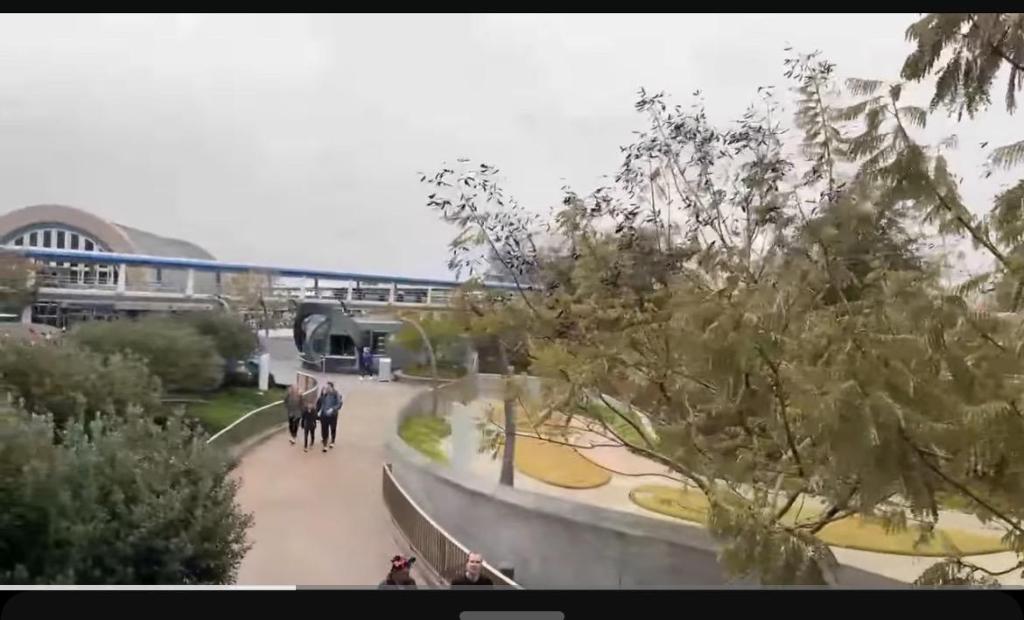



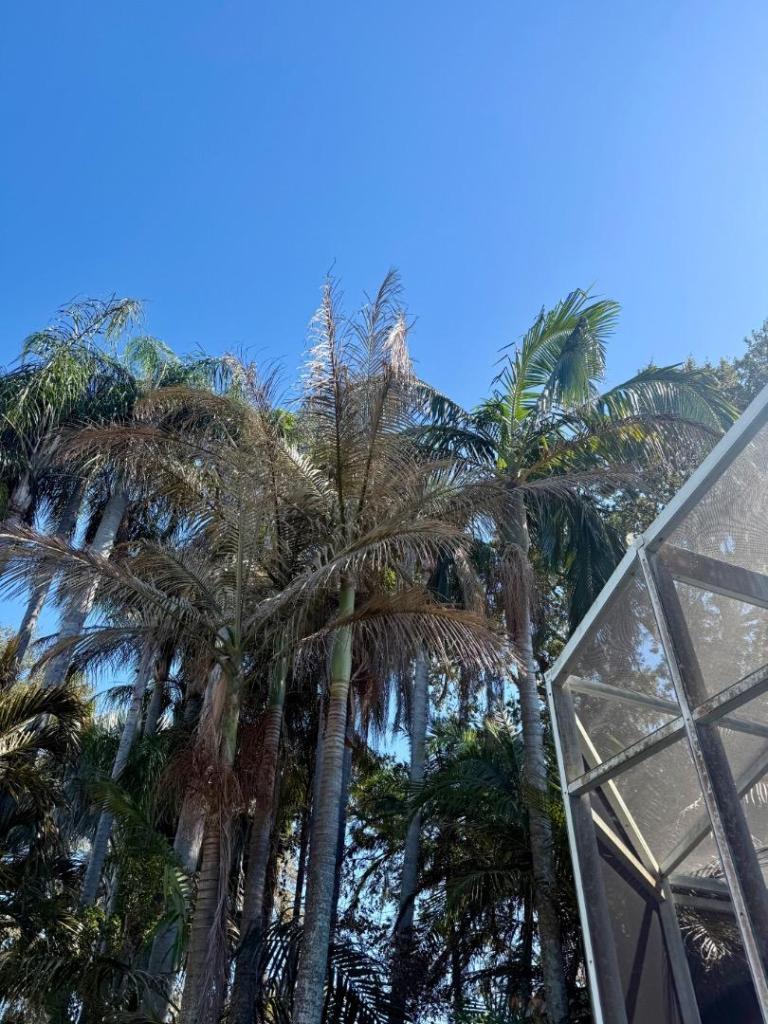
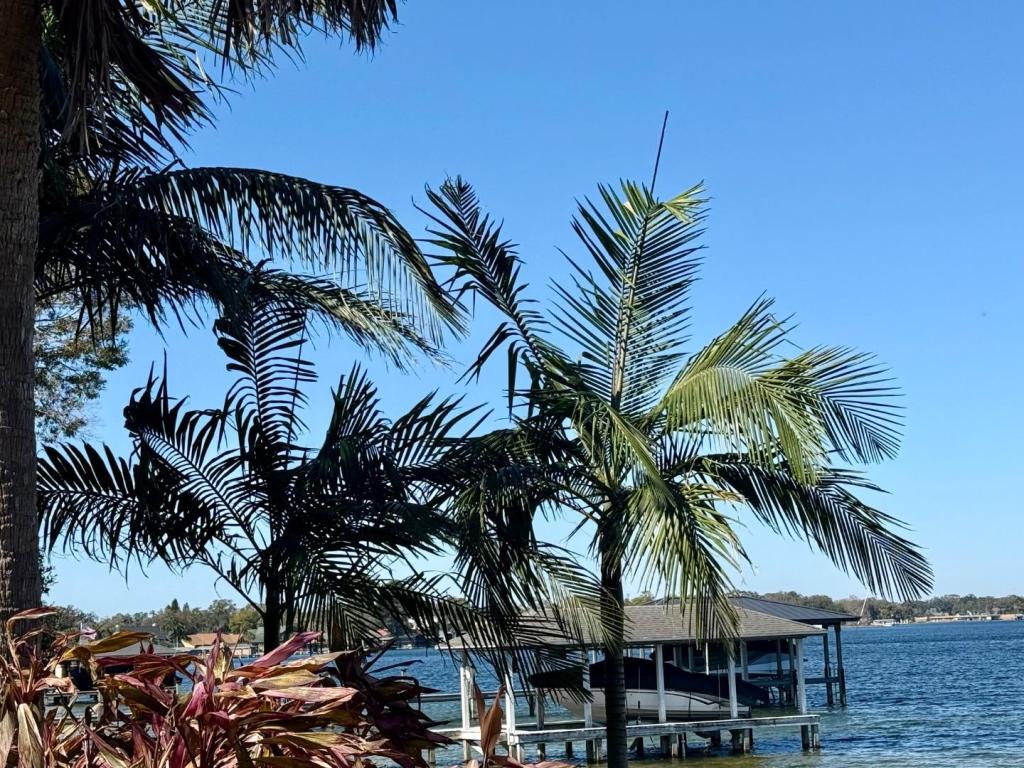







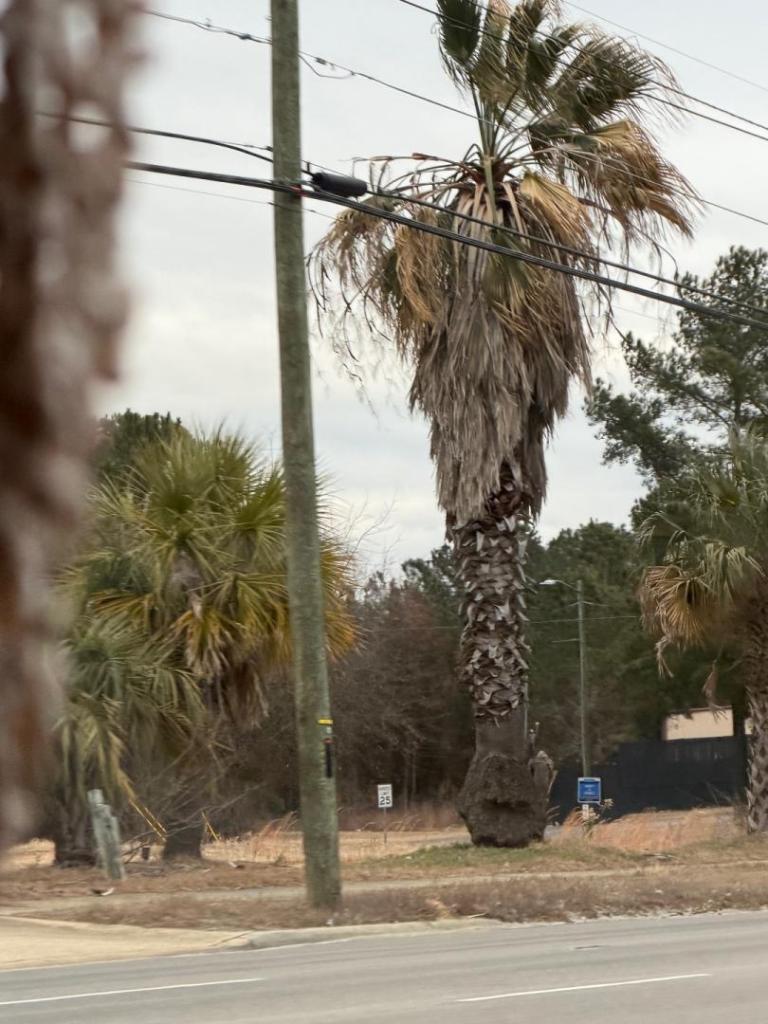


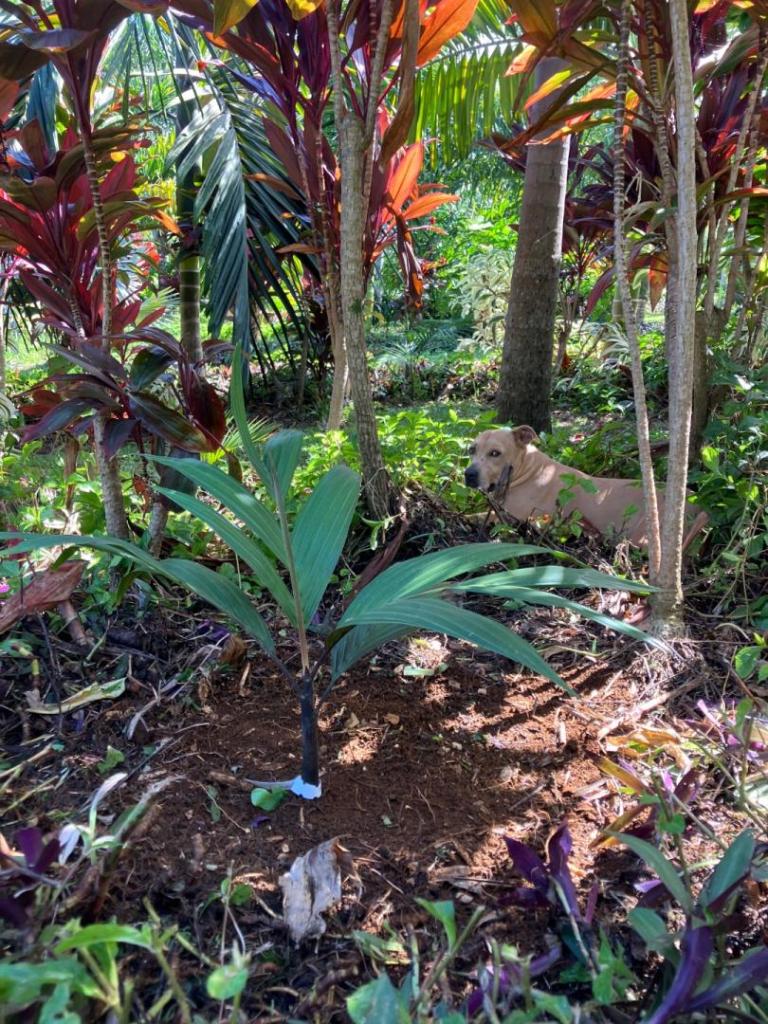

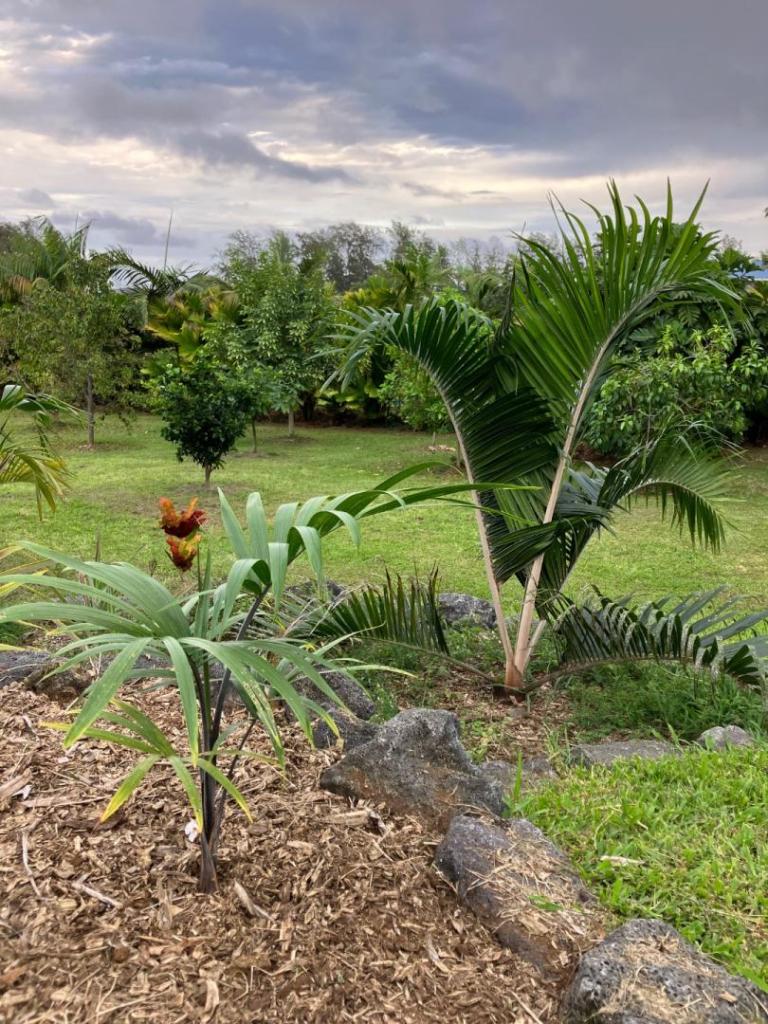



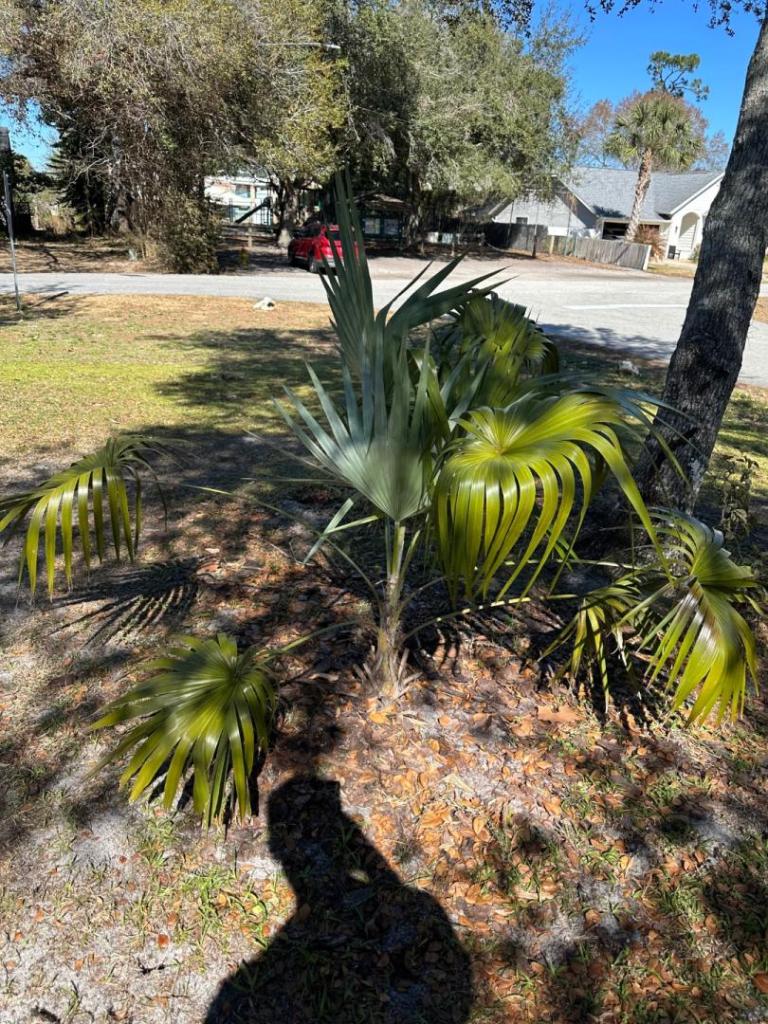




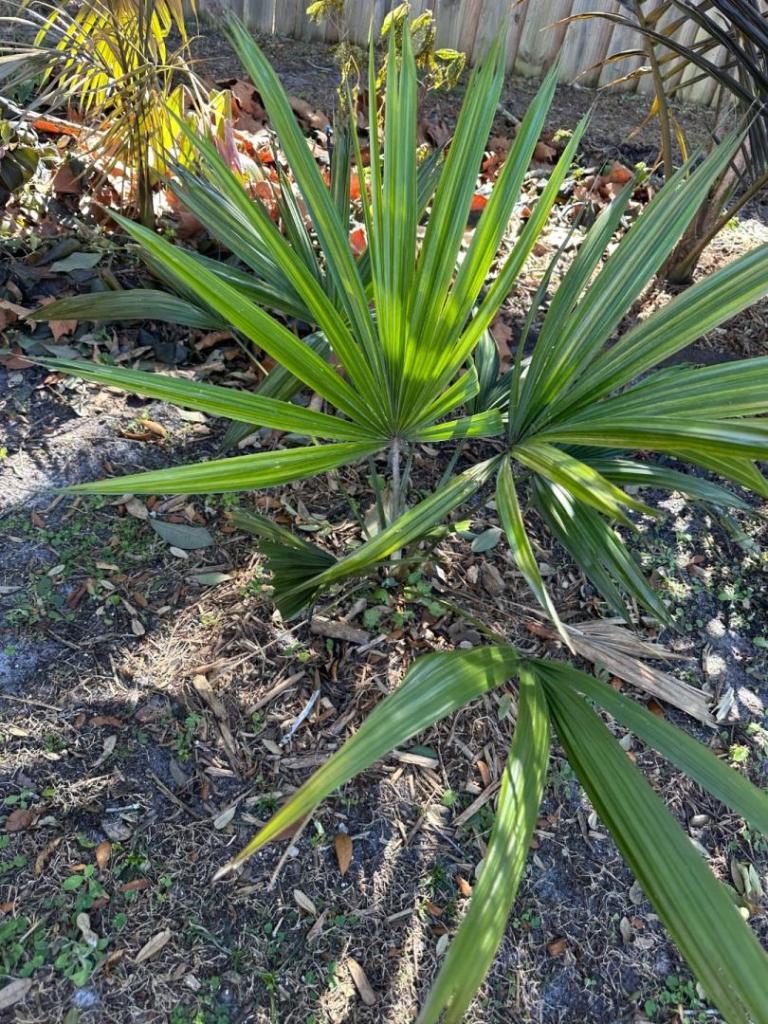


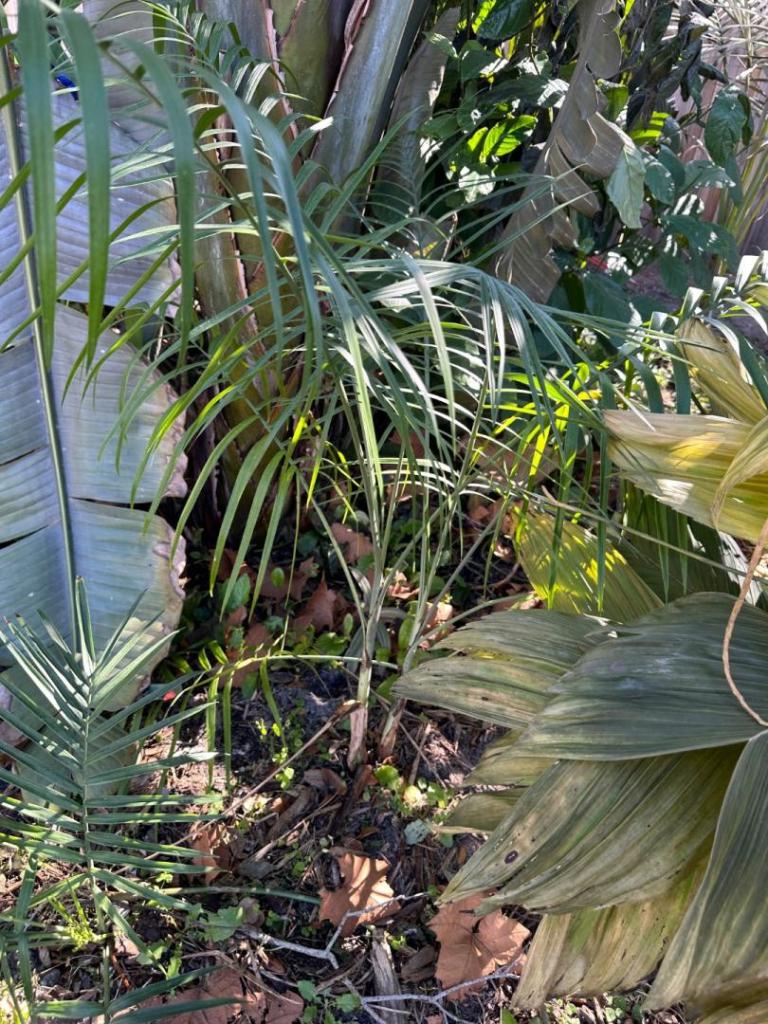
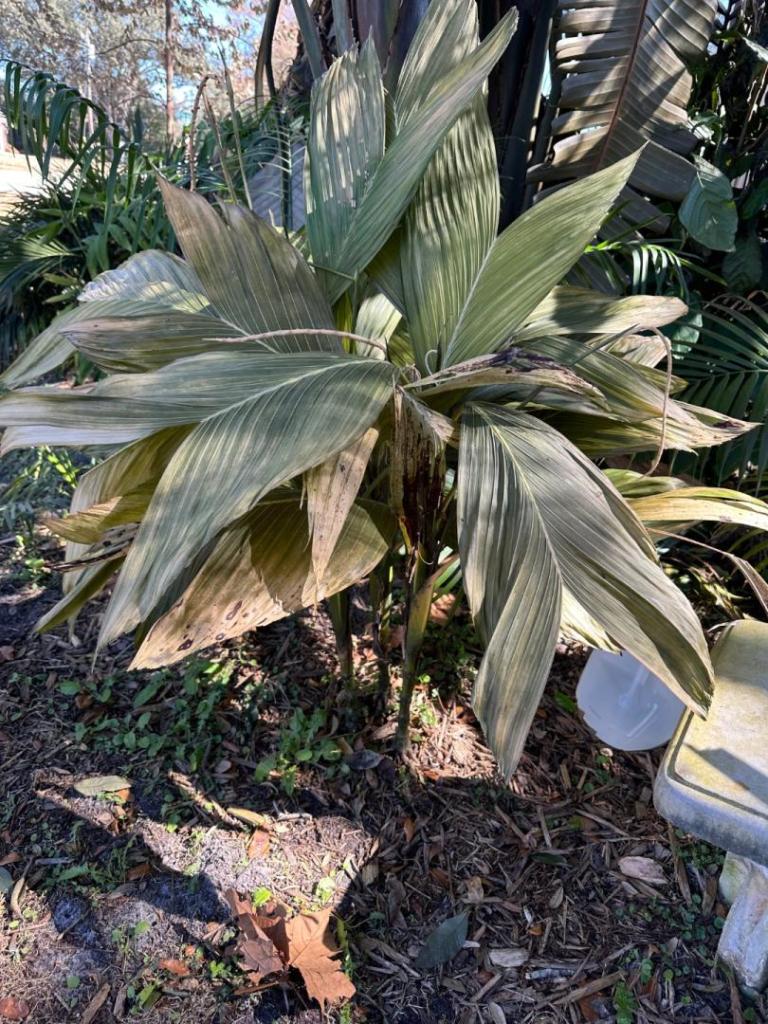
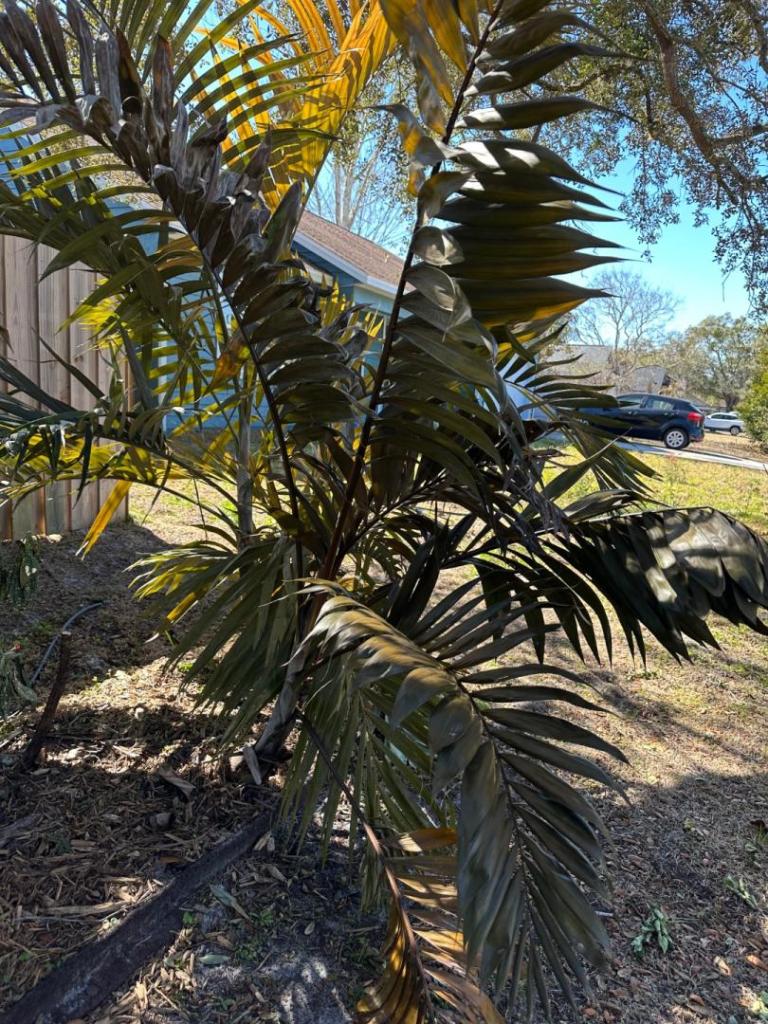
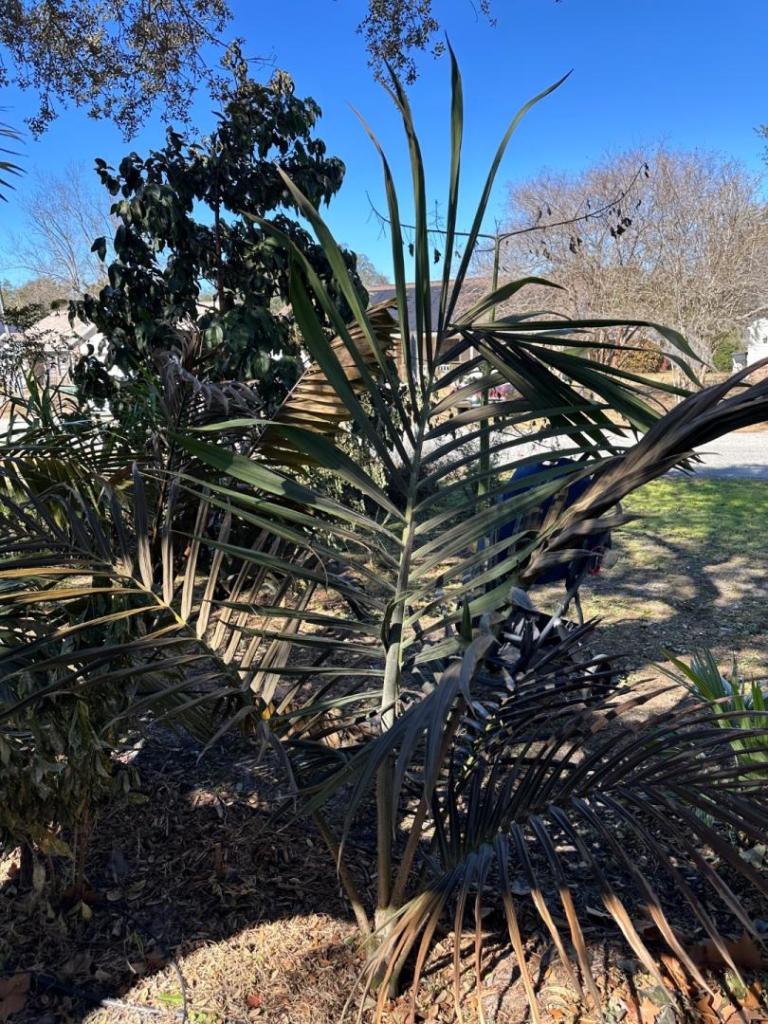
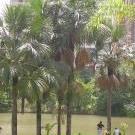




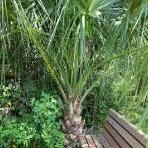

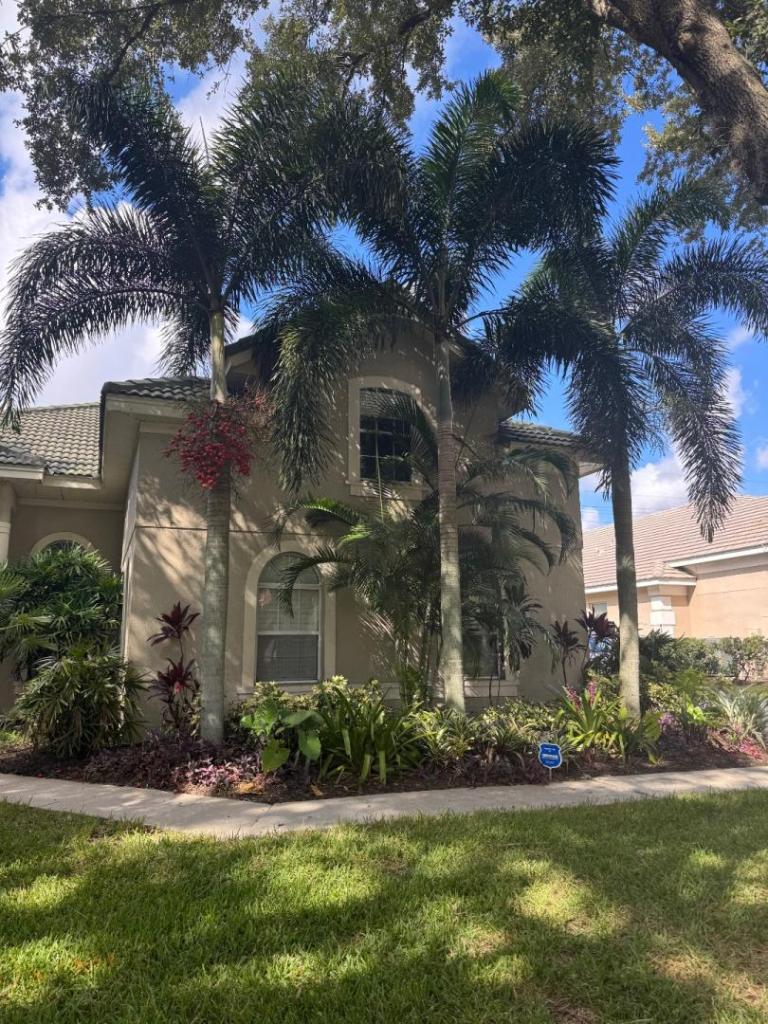

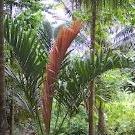




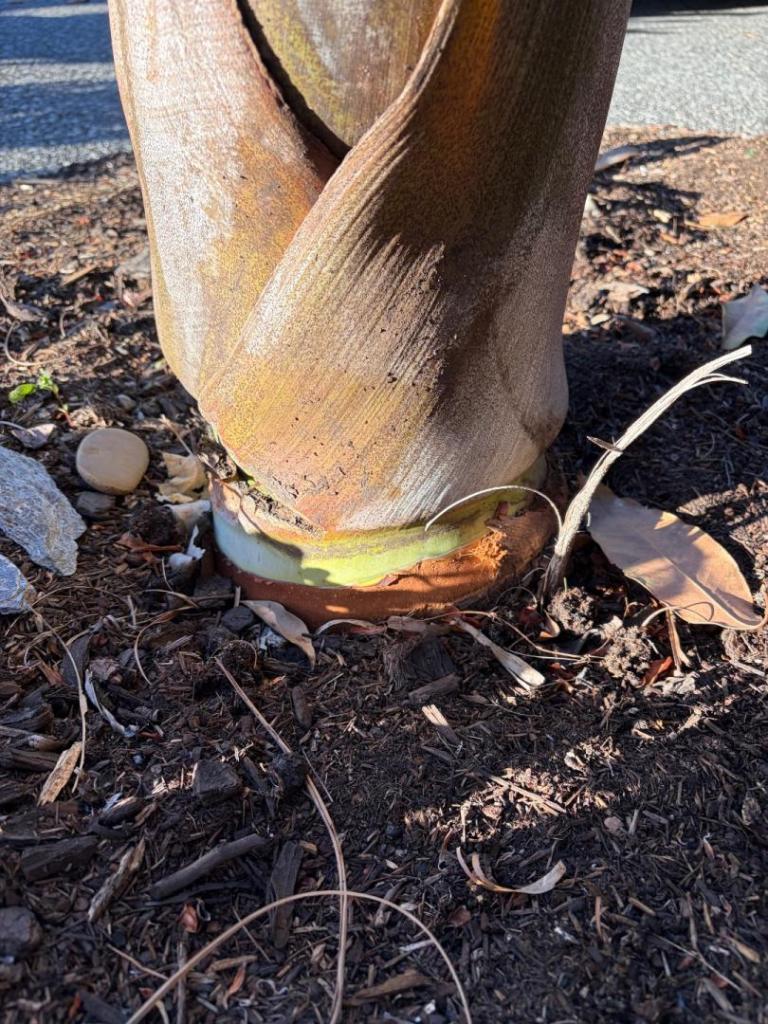

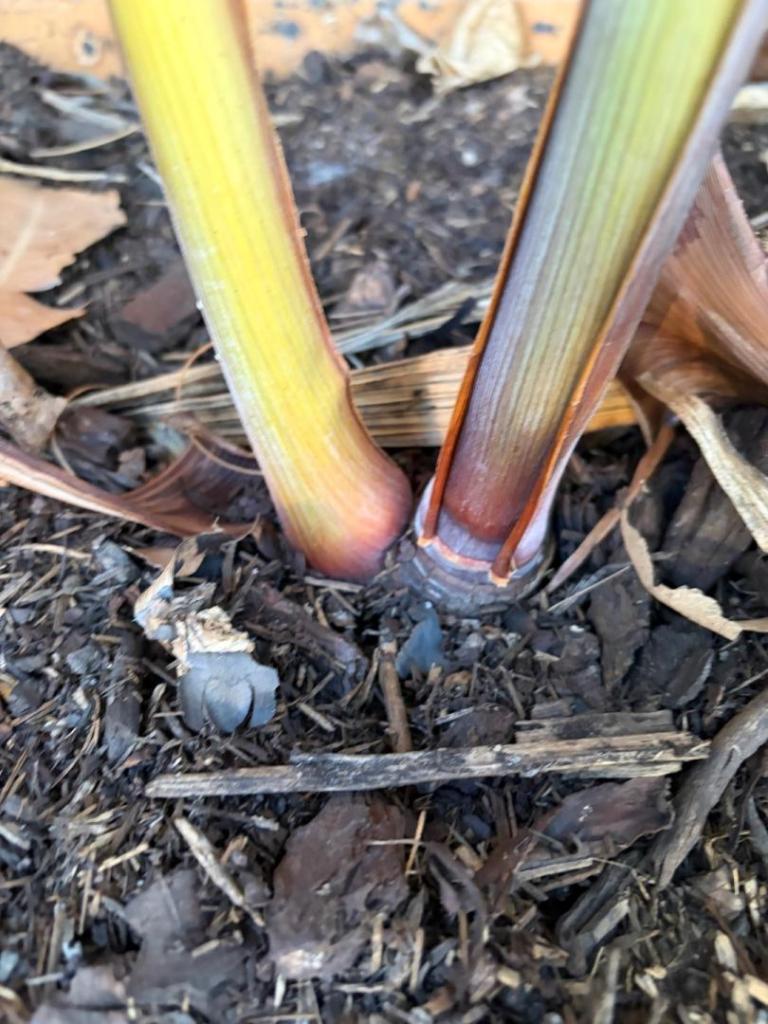





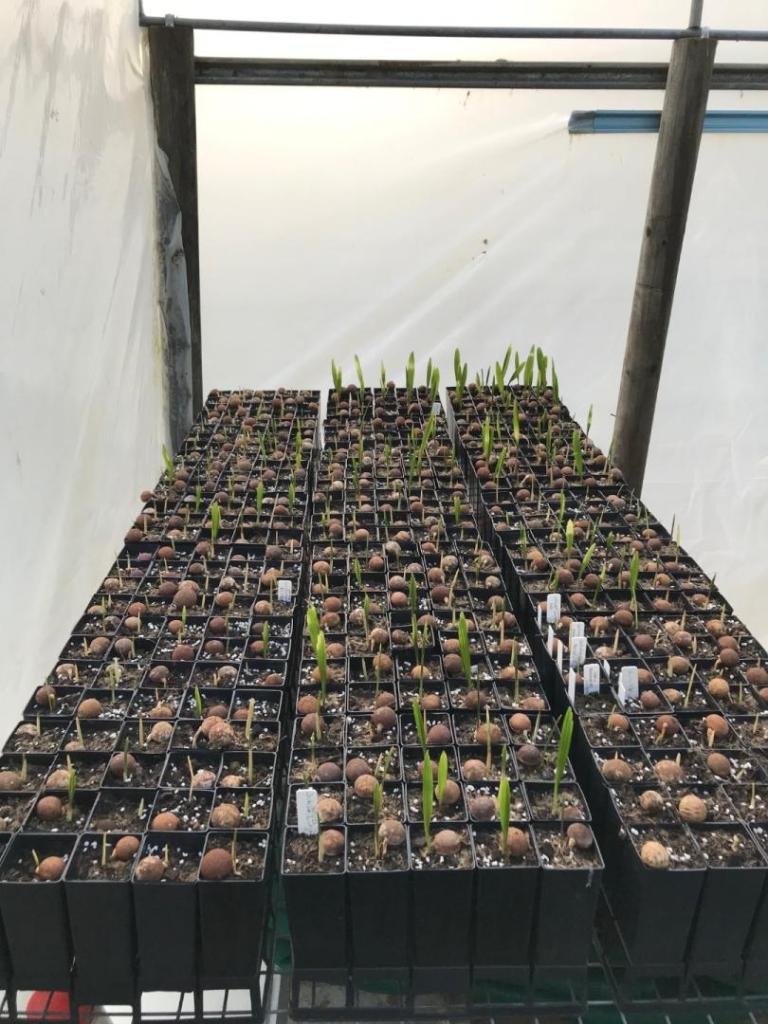
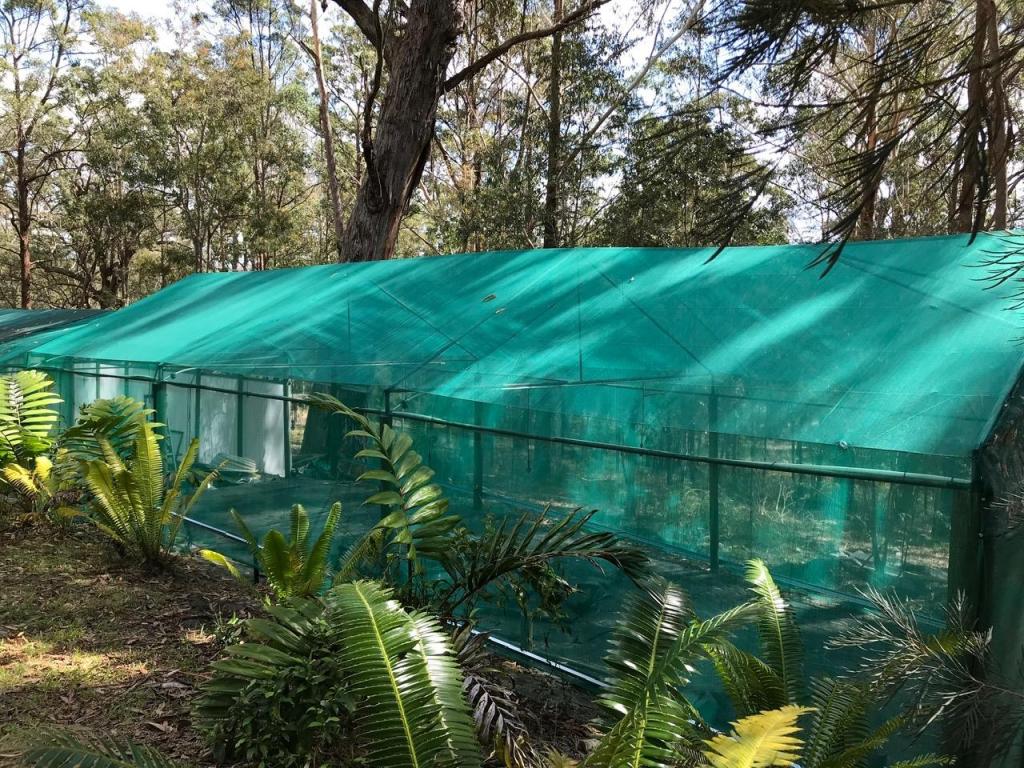



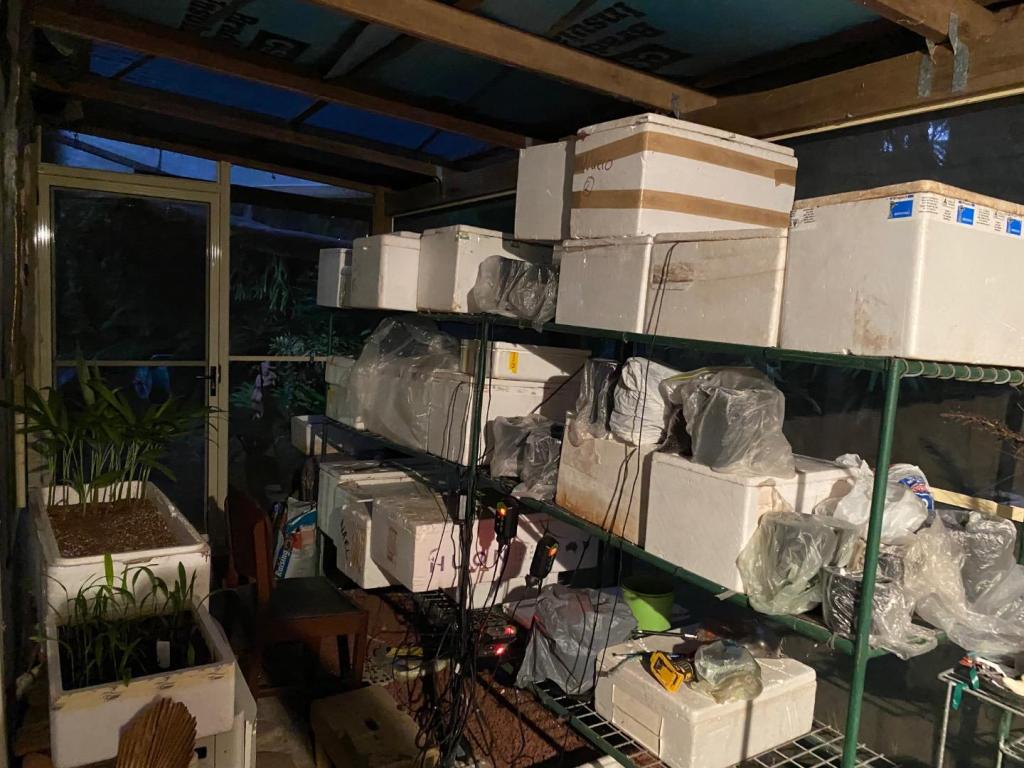

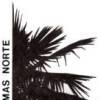
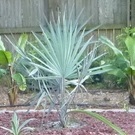

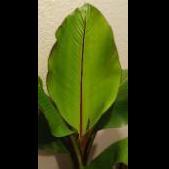
.thumb.png.04b3487b96ff29c55b8a8994b91f62b2.png)


